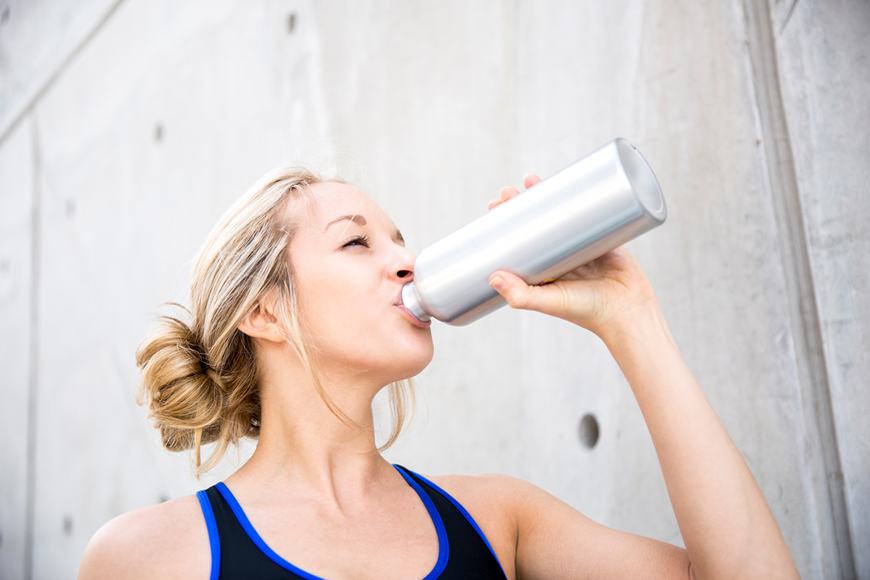Collagen As a Post-workout Protein?
23/10/2020
You can be a successful bodybuilder without any supplementation at all. In fact, many people choose to devote time to this kind of pursuit of muscle mass. It is extremely time-consuming, though, as you would have to properly organize and adjust your own nutrition, recovery, and training schedule, leaving little time for other responsibilities you may have.
If you have a full-time job and a social life to attend to, you’re more than likely going to have to supplement yourself with various proteins and other substances to make the most out of your time in the gym.
What supplementation regime is the best, though? There are as many answers to that question as there are bodybuilders in the world. Some people swear by whey protein and nothing else. In contrast, others adhere to a complex schedule of taking a long list of supplements, including various vitamins and special foods on top of different kinds of protein.
According to the nutrition experts from primalharvest.com, one of the most effective proteins when it comes to post-workout supplementation is collagen. It’s already naturally occurring in your body, as it’s responsible for the strength and elasticity of your skin, amongst other functions.
Continue reading to learn more about this most abundant protein in the human body, as well as how collagen supplementation can aid you in building muscle and post-workout recovery.
Understanding Supplementation
Before taking a more detailed look at collagen and its many qualities, you should understand why it may be good for you to take supplements in combination with your workouts and how they can impact your overall health and fitness levels.
First and foremost, you should never consider supplements as replacements for nutritious meals, nor should you go overboard with protein shakes and powders. For example, if you already use a certain whey protein powder, you shouldn’t also get the same product from another brand to boost your muscle-protein synthesis. It doesn’t work that way, and supplementing with too many products at once can have some unintended consequences.
Secondly, you should always research each and every protein, collagen included, to check whether it does not contain any allergens or should not be used by persons with certain conditions or disorders. Before buying any supplement, verify whether the substance you want to take is approved for human use by the Food and Drug Administration or an equivalent entity that governs food and drugs in your country.
Finally, remember that even though they can improve your overall health and fitness, supplements are not medicine. They are not intended to diagnose, treat, cure, or prevent any disease! If you notice something worrying about your body or sustain a particularly nasty injury, the doctor’s office is the first place you should visit and seek advice regarding what to take in order to alleviate your symptoms.
Collagen: A Brief Introduction
Collagen is not only the most prominent protein in humans. In fact, it’s the most abundant protein in all of the animal kingdom. Collagen is present in all of the connective tissues in the body, which means that it can be found in your skin, tendons, ligaments, and, perhaps most importantly, for bodybuilders — in your muscles.
Proteins, collagen included, consist of amino acids, which are the building blocks of every protein. Collagen peptides are rich in three of these amino acids: glycine, hydroxyproline, and proline. They make this protein so effective at keeping your connective tissue together and your skin healthy and elastic.
As the human body ages, its collagen production slows down significantly. Taking collagen supplements can then not only be beneficial for athletes and other physically active individuals but also for the elderly in order to prevent joint pain, retain muscle strength and avoid any performance issues related to deteriorating joints and muscles.
There are still a lot of uncovered benefits of collagen use, and the research is insufficient on these matters. Still, some health practitioners and users claim that it can be good for your gut biome, as well as alleviate anxiety and help improve your overall mood.
Collagen and Bodybuilding
There are many advocates of using collagen protein as a supplement intended to improve your muscle-building capacity and help your connective tissues recover after a heavy workout. Collagen contains amino acids that are particularly important for your tendons and ligaments, but also the bones and muscle tissue.
Intense exercise can deplete your body of important nutrients, and a post-workout collagen protein shake can help you restore them much faster. On top of that, glycine and proline (two of the amino acids present in collagen) work really well in terms of accelerating your recovery time. That will ensure that you don’t suffer from sore muscles or painful and cracking joints in the hours that follow your exercise.
Another one of the amino acids included in collagen is arginine. It’s not as high in volume as glycine or hydroxyproline; however, the protein contains enough of it to grant athletes noticeable, long-term performance boosts. This means that if you apply collagen after your workout, its effects will carry on over to the next exercise sessions!
Pre-workout vs. Post-workout: When Should You Have a Collagen Shake?
In the section above, we have outlined the various benefits of collagen as a post-workout protein source. This is the most common mode of usage for this particular supplement. However, you can also take collagen before working out, and it will work just as well, with some additional benefits that aren’t quite as noticeable when you make it your go-to post-workout protein.
Ingesting collagen supplements an hour before exercise can improve your ankles’ stability, which is of the utmost importance when you’re lifting weights and want to minimize your chances of sustaining an injury. Additionally, collagen peptides are good for ensuring the right balance of nitrogen in your body, which is essential if you want to maintain high muscle growth rates.
As you can see, collagen peptides are beneficial for your connective tissue regeneration and muscle growth regardless of whether you choose to get them into your system before or after your workout. Remember, however, that if you truly want collagen supplements to boost your performance and revitalize your skin and joints, you need to combine them with a complete, nutritious diet. Otherwise, you may not notice any of the effects outlined above.
Collagen Alternatives and Additional Supplementation
Tendons and ligaments are not the only parts of your body that get exposed to all sorts of injuries and deterioration during workouts. You may want to consider implementing another protein powder or supplement to get your fitness to an even higher level.
Whey protein is one of the most popular proteins among athletes, much more so than collagen. It’s known as a “complete protein” because it contains all of the nine essential amino acids. It is particularly rich in BCAAs, or branched-chain amino acids, which are absolutely vital for maximizing muscle retention and post-workout recovery. Drinking a whey protein shake after exercising can accelerate your muscle-protein synthesis, leading to higher “gains” from every workout.
If for whatever reason, you’re not keen to add collagen or whey to your diet and bodybuilding regimen, you may want to give BCAAs a shot. As we’ve mentioned earlier, they are present in whey protein powder as well, but they’re also available in isolated form. You’ll get each one of the most essential amino acids in one neat dose, without any of the extra ingredients that come with whey and collagen. While it is not a complete protein, it does the job just as well as whey and collagen supplements.
If no uncontrollable factor (such as disease or a specific muscle condition) is preventing you from taking collagen and whey, you should consider using them in combination in order to help yourself maximize muscle mass and make each workout session count. As for isolated BCAAs, they are a great alternative if you can’t add the aforementioned proteins to your diet. If you’ve got the choice, though, these products should not be your first pick.
The Bottom Line
Whether you’re looking for an additional protein source to up your amino acid intake as you prepare to start your bodybuilding journey, or you’re already an experienced gym-goer with the desire to increase your performance, you can’t go wrong with collagen peptide. They contain high levels of essential amino acids, such as glycine or proline, all of which are great for your joint health and muscle retention and recovery abilities. While collagen is not the complete package when it comes to amino acid levels, many athletes swear by it as the only thing they need to maximize their muscle-protein synthesis and grow a good amount of muscle mass.
The final advantage of collagen over other supplements is the fact that no matter how anti-supplement advocates try to spin it, it is completely natural and harmless to humans. It’s found in the organisms of nearly all animals, and not many side effects can be attributed to the use of collagen peptides powder by healthy adults.

Nick